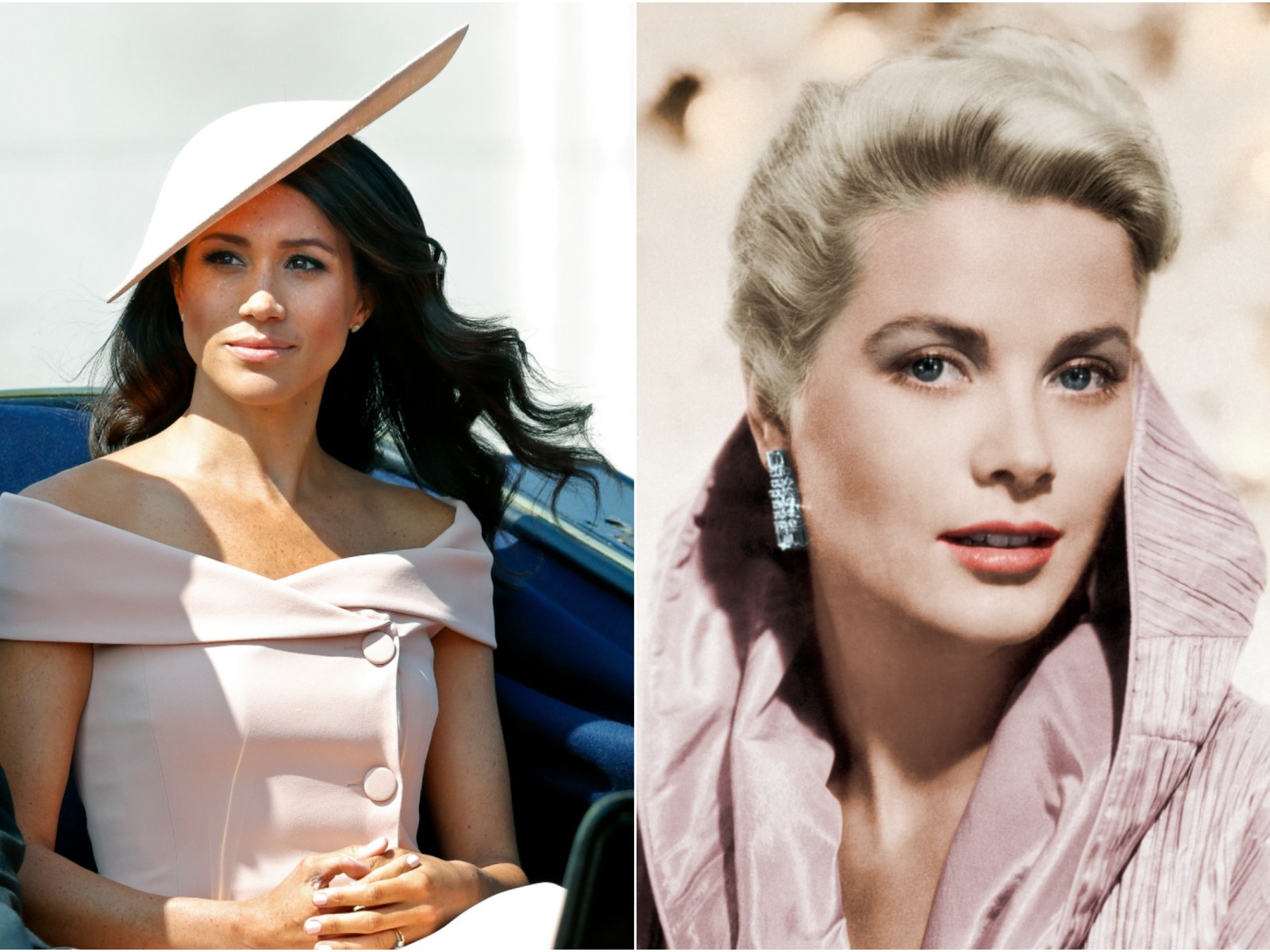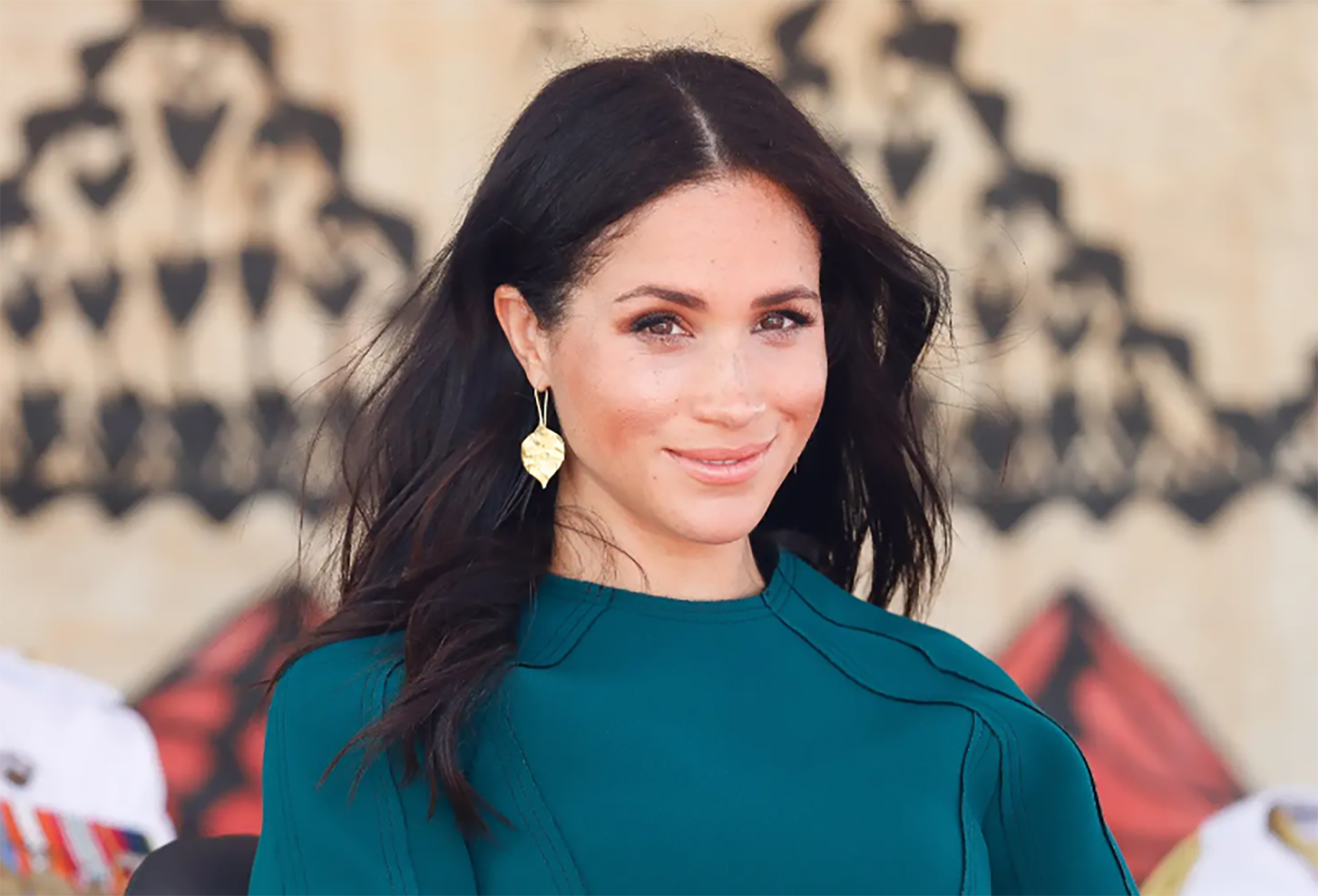Meghan Markle and Grace Kelly, both iconic figures, share a remarkable journey from Hollywood stardom to royal life. Born in the United States, these women captivated the world not only with their acting talents but also with their transition into royalty. However, Meghan Markle feels uncomfortable with the frequent comparisons to Grace Kelly, believing the similarities between them are inherent to a ‘superstar’ persona.

Grace Kelly, born on November 12, 1929, in Philadelphia, Pennsylvania, had a distinguished family background. Her father was a three-time Olympic gold medalist in rowing, and her mother was the first coach of women’s athletic teams at the University of Pennsylvania. Kelly’s acting career soared when she starred in “High Noon” in 1952, leading to several acclaimed roles, including an Academy Award for Best Actress in “The Country Girl.”
Meghan Markle, born on August 4, 1981, in Los Angeles, California, had a different yet notable upbringing. Her mother, Doria Ragland, was a clinical therapist and yoga instructor, while her father, Thomas Markle, worked in television as a light and photography director. Markle’s acting career gained significant attention with her role as Rachel Zane in the TV series “Suits,” which she starred in from 2011 to 2018.
Both Kelly and Markle met their royal spouses under unique circumstances. Kelly met Prince Rainier III of Monaco at a photo shoot during the Cannes Film Festival in 1955, leading to their marriage a year later. In contrast, Markle was set up on a blind date with Prince Harry in July 2016, leading to their engagement and subsequent marriage in 2018.

A notable parallel between Kelly and Markle is their decision to give up their acting careers upon engagement. Kelly briefly continued acting to fulfill her contract with MGM before permanently retiring, while Markle exited “Suits” immediately following her engagement announcement. Unlike Kelly, Markle faced suggestions from the royal family to continue acting to earn money, a recommendation she did not pursue.
Financial aspects also differ significantly between the two. Kelly was required to pay a $2 million dowry, depleting her Hollywood fortune. In contrast, Markle did not face such financial demands upon her marriage to Prince Harry. Despite these differences, both their weddings were broadcast globally and depicted as fairy tale love stories, captivating audiences worldwide.
The cultural shock of transitioning to royal life was another shared experience. Kelly, who once expressed her disdain for Hollywood’s unreal nature, immersed herself in charitable causes, establishing a foundation for local artists. Markle, too, focused on philanthropy, initially serving as a patron of UK charities and later launching the nonprofit foundation Archewell with Prince Harry.

However, Markle’s experience was marred by intense scrutiny and racism from the British press, contrasting with the adoration Kelly received from the Monegasque media. This negative media attention led to multiple lawsuits and ultimately contributed to Markle and Prince Harry stepping back from their royal duties and relocating to California.
Markle’s discomfort with comparisons to Kelly likely stems from the unique challenges and criticisms she faced. While both women made significant sacrifices for their royal roles, the stark differences in their experiences highlight the evolving nature of media and public perception of modern royalty.
In conclusion, Meghan Markle’s unease about being often compared to Grace Kelly underscores the inherent complexities of transitioning from Hollywood to royalty. Despite their striking similarities, including their American origins, successful acting careers, and marriages into royalty, the distinct challenges and media scrutiny faced by Markle set her journey apart. These comparisons, while inevitable, fail to capture the full spectrum of their individual experiences and the unique pressures of modern royal life.
News
Celine Dion and Lady Gaga IGNORE Meghan on stage at the 2024 Olympic Games: ‘WE DO NOT WANT A SCRIPTED RELATIONSHIP’
Celine Dion and Lady Gaga Humiliate Meghan Markle During 2024 Olympics Opening Ceremony During the 2024 Olympic opening ceremony, Celine Dion and Lady Gaga publicly criticized Meghan Markle, calling her a “grifter” and igniting intense controversy. Their performance, intended to…
Carole Malone FRENCH: ‘Don’t think of yourself as a hero if you’re just blaming others’. Harry’s claim that tabloids caused a rift between him and RF was exposed by Carole Malone
Prince Harry has once again become a lightning rod for controversy following his latest appearance in an ITV documentary detailing his legal battle against tabloid newspapers. The documentary sheds light on the Duke of Sussex’s recent victory against Mirror Group…
UPDATE: Prince William removing Queen Camilla’s sister from THE ROYAL PAYROLL after two decades
Prince William has decided not to renew the contract of Annabel Elliot, Queen Camilla’s sister, as the interior designer for the Duchy of Cornwall, according to the recently released Integrated Annual Report of the royal family’s historic estate. This decision…
Harry MAKES RIDICULOUS ‘STORIES’ about Queen Elizabeth in new ITV documentary
A new ITV documentary featuring Prince Harry has sparked significant controversy, as it makes bold claims about his relationship with the late Queen Elizabeth II and Princess Diana. The documentary, which premiered on Thursday, has reportedly caused a stir within…
Prince Harry ‘RUSHLY LOOKING FOR ANSWERS’ from RF. Through latest statement on challenging Invictus Games
King Charles III faces a moral dilemma after Prince Harry announced he will bring his biggest project to England in 2027, as revealed on a British morning show. On Tuesday, Harry announced that the eighth Invictus Games veterans event will…
Prince Harry admits to ‘CENTRAL PIECE’ in split between him and RF
Prince Harry has revealed that the intense and prolonged battle with British tabloids was a key factor in the rift between him and the royal family. In a recent interview on ITV, Harry spoke candidly about the impact of his…
End of content
No more pages to load










